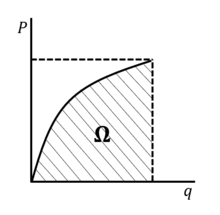Another thing is aesthetic exotic. Changing not the material, but the method of its preparation, it makes us adapt to new unusual optics. We see a different world, with different eyes. Such a view is organic only for its unique culture, which, with the help of the cinema, shares its worldview with us, literally. You can visit https://new-gomovies.online/ to get a perfect idea.
Take, say, the great movie of Kislovsky. After all, this Hollywood will never remove. Not at all because there is some Polish specificity there. Nothing of the kind, his best paintings generally go in French, and indeed were shot in Geneva. Kislovsky is exotic to others his uncompromising seriousness, ethical concentration, theological determination. Together, these qualities make up a set that you will not find anywhere else. It was this uniqueness that brought not wide, but, so to speak, deep success to his films. It is this, relatively speaking, emotional exotics that made the appearance of the “Decalogue” in America last year a high-profile event. American critics wrote:

Speaker:
- It seems that the people depicted in the Decalogue are older than us because they know more about life than ours.
- The Decalogue, ten films made in the late 80s for Polish TV, rehabilitate narrative art. The tension and purity of the narrative line, reminiscent of Hitchcock’s best films, are combined here with the visual sophistication and naturalness of the symbolic series. This is a soap opera raised to metaphysics. Kislovsky showed what contemporary art can be, which today is so often humiliated by petty mimicking of great samples.
- Such lessons of aesthetic exoticism in recent years are increasingly appearing on the screens of America. Moreover, today this flow comes mainly from Asia, which has become a constant source of new discoveries.
- Perhaps the first in this series was Iranian cinema, which in America has it’s not too numerous, but ardent fans. According to New York critic Stephen Holden, the main quality of Iranian films is their mystery:
For the Director
The director “leaves behind the scenes the motives of his heroes and their past. But it is precisely this indifference to the tyranny of psychological realism that determines the form and content of our cinema that acts so refreshingly on the Western audience.
For example, in the award-winning Iranian picture “Taste of Cherry,” the hero wants to commit suicide and is looking for a man who would bury his corpse. We do not know what led to his suicide and are not even sure that it really happened. All we see is long trips through the desert and long, little to explain dialogues. However, gradually in this rocking, as mournful Central Asian melody, monotony, existential anxiety arises, which does not leave us at the end of the film. This hard-to-explain feeling, this bitter spiritual sediment, was the purpose of the film, shot in silent opposition to Hollywood.
An interesting American movie keeps you awake in the audience, but my boring movie will prevent you from sleeping in your bed.
Conclusion
Traveling around the world of cinema from West to East, I would like to make the next stop at a completely unnoticeable stop. About a year ago in America appeared and was greeted with enthusiastic reviews the film “Championship”, released by the studio of the tiny Himalayan country of Bhutan. The heroes of this picture are young students of the Tibetan monastery.




